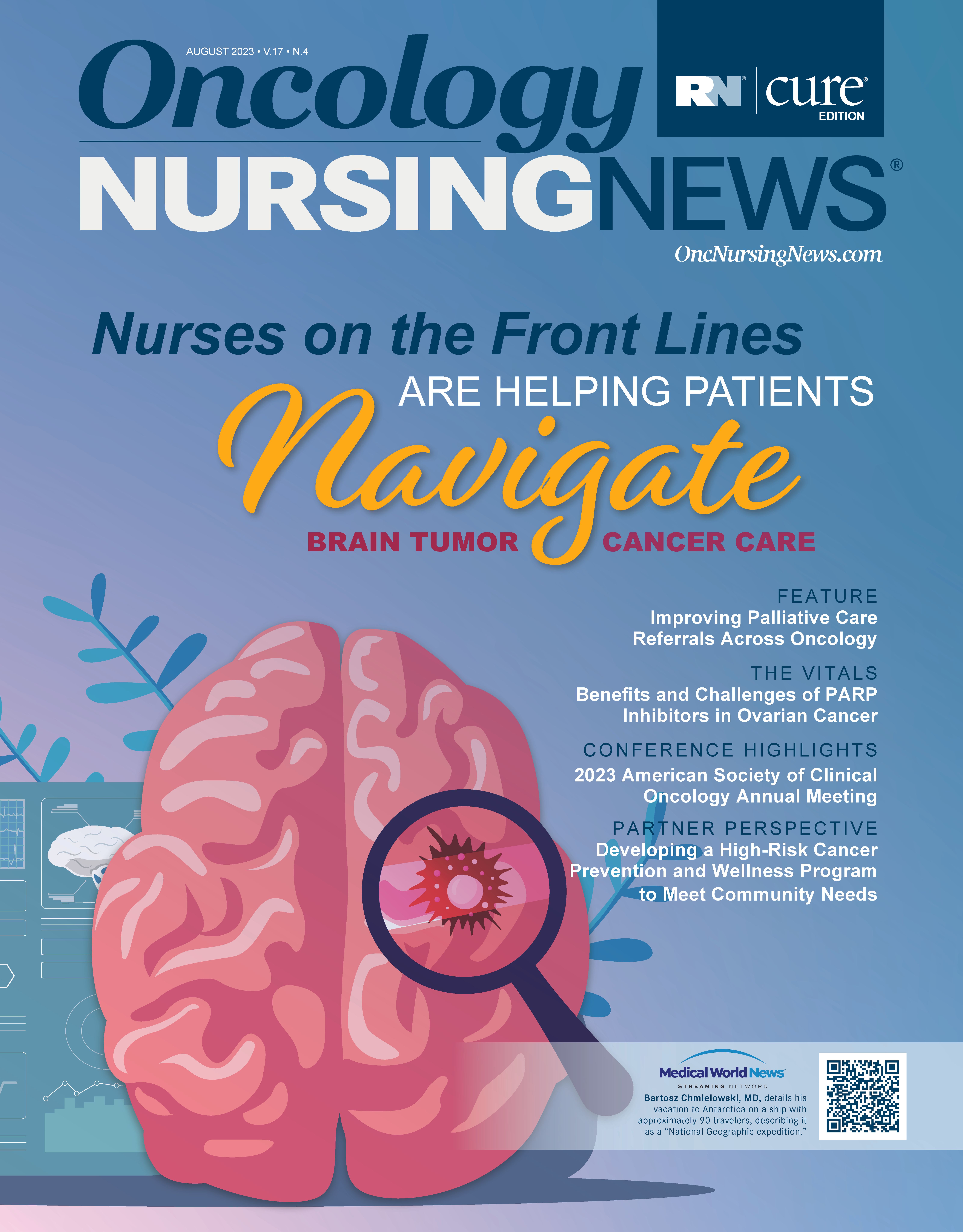Epcoritamab Obtains Accelerated Approval for Relapsed/Refractory DLBCL
The FDA has granted epcoritamab accelerated approval for the treatment of patients with relapsed or refractory diffuse large B-cell lymphoma. The prescribing label comes with boxed warnings for cytokine release syndrome and neurologic problems.
Epcoritamab Obtains Accelerated Approval for Relapsed/Refractory DLBCL

Epcoritamab-bysp (Epkinly) has received accelerated approval for the treatment of adult patients with relapsed/refractory (R/R) diffuse large B-cell lymphoma (DLBCL), including DLBCL arising from indolent lymphoma, and high-grade B-cell lymphoma (HGBL), following 2 or more lines of systemic therapies.1
The accelerated approval is supported by findings from the phase 1/2 EPCORE NHL-1 trial (NCT03625037), in which 148 patients with CD20-positive DLBCL demonstrated an overall response rate (ORR) of 61% with the T-cell–engaging bispecific antibody. This included a complete response rate of 38% and a median duration of response (DOR) of 15.6 months.
"Patients with DLBCL who relapse or are refractory to currently available therapies have limited options. Generally, the prognosis for these patients is poor and management of this aggressive disease can be challenging," Tycel Philips, MD, associate professor in the Division of Lymphoma, Department of Hematology & Hematopoietic Cell Transplantation, at City of Hope, stated in a news release. "Epcoritamab is a subcutaneous bispecific antibody that offers an additional treatment option for this patient population. With this approval, patients who are in need of additional therapy may have the opportunity to receive epcoritamab after failure to respond or relapse after two or more systemic therapies."
Epcoritamab is designed to simultaneously bind to CD3 on T cells and CD20 on B-cells and induce the R cell mediated killing of CD20+ cells.1 The subcutaneous injection is given on a 28-day treatment cycle: in cycles 1 through 3, patients will receive treatment on days 1, 8, 15, and 22; on cycles 4 through 9, they will receive treatment on days 1 and 15; and by cycle 10, and beyond, they will receive this treatment on day 1 only.2
The prescribing label comes with a boxed warning for cytokine release syndrome (CRS). To mitigate the possible effects of CRS, the agent will be delivered on a step-up dosing schedule. Patients will receive “step-up” doses of epcoritamab on day 1 (0.16 mg) and day 8 (0.8 mg) of their first treatment cycle. They will receive their first full dose (48 mg) on day 15 of cycle 1. Medicines to reduce the risk of CRS should be administered prior to each dose in cycle 1.2
Moreover, because of the CRS risk, and the risk of neurologic problems, patients will need to be hospitalized for 24 hours following their first full dose on day 15 of cycle 1.2
The prescribing label also comes with warnings for infections and cytopenia. Nurses should monitor for signs and symptoms of infection, including opportunistic infections, as well as monitor complete blood counts.2
The most common adverse events to occur with treatment were CRS, fatigue, musculoskeletal pain, injection site reactions, pyrexia, abdominal pain, nausea, and diarrhea. The most common grade 3/4 laboratory abnormalities are decreases in lymphocyte count, neutrophil count, white blood cell count, hemoglobin, and platelets.2
"The FDA approval of [epcoritamab] represents a new treatment mechanism of action for third line patients [with] DLBCL. As a non-chemotherapy, single-agent treatment for [this population], we hope that [epcoritamab] can effectively treat this aggressive cancer type and can be used for patient care quickly and in an off the shelf form for physicians," Thomas Hudson, MD, senior vice president of research and development and chief scientific officer of AbbVie, the developer of epcoritamab, added in the press release. "The approval is just the first step, with our partner Genmab, toward a shared goal of developing a core therapy for patients with B-cell malignances."1
Reference
- EPKINLY™ (epcoritamab-bysp) approved by US FDA as the first and only bispecific antibody to treat adult patients with relapsed or refractory diffuse large B-cell lymphoma (DLBCL). News release. AbbVie. May 19, 2023. Accessed May 19, 2023. https://news.abbvie.com/article_display.cfm?article_id=12584
- Epkinly. Prescribing information. Genmab US, Inc; 2023. Accessed May 19, 2023. https://www.genmab-pi.com/prescribing-information/epkinly-pi.pdf




